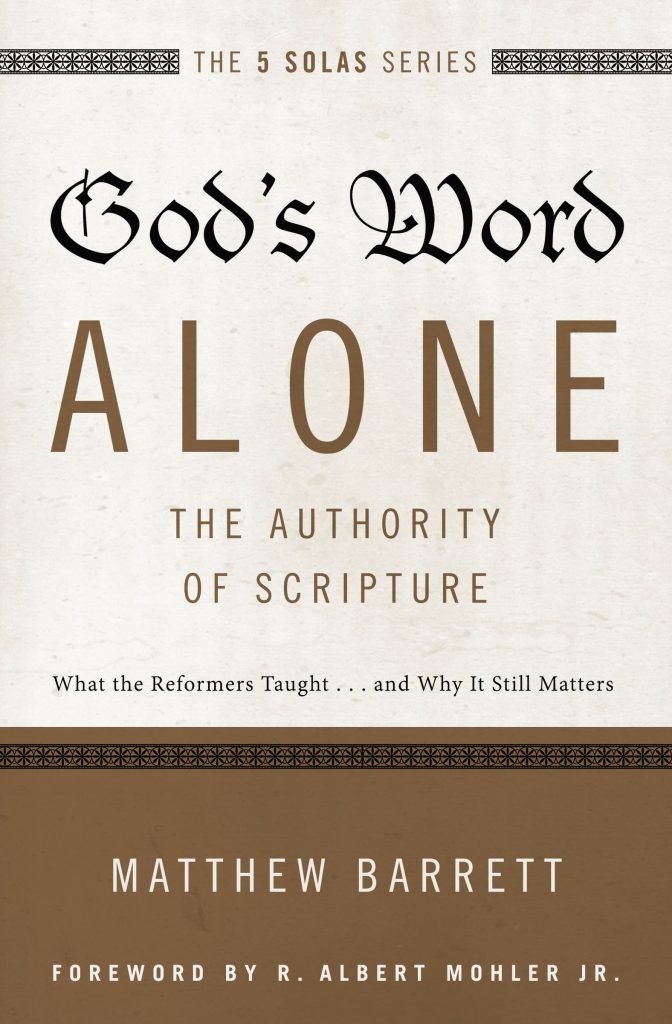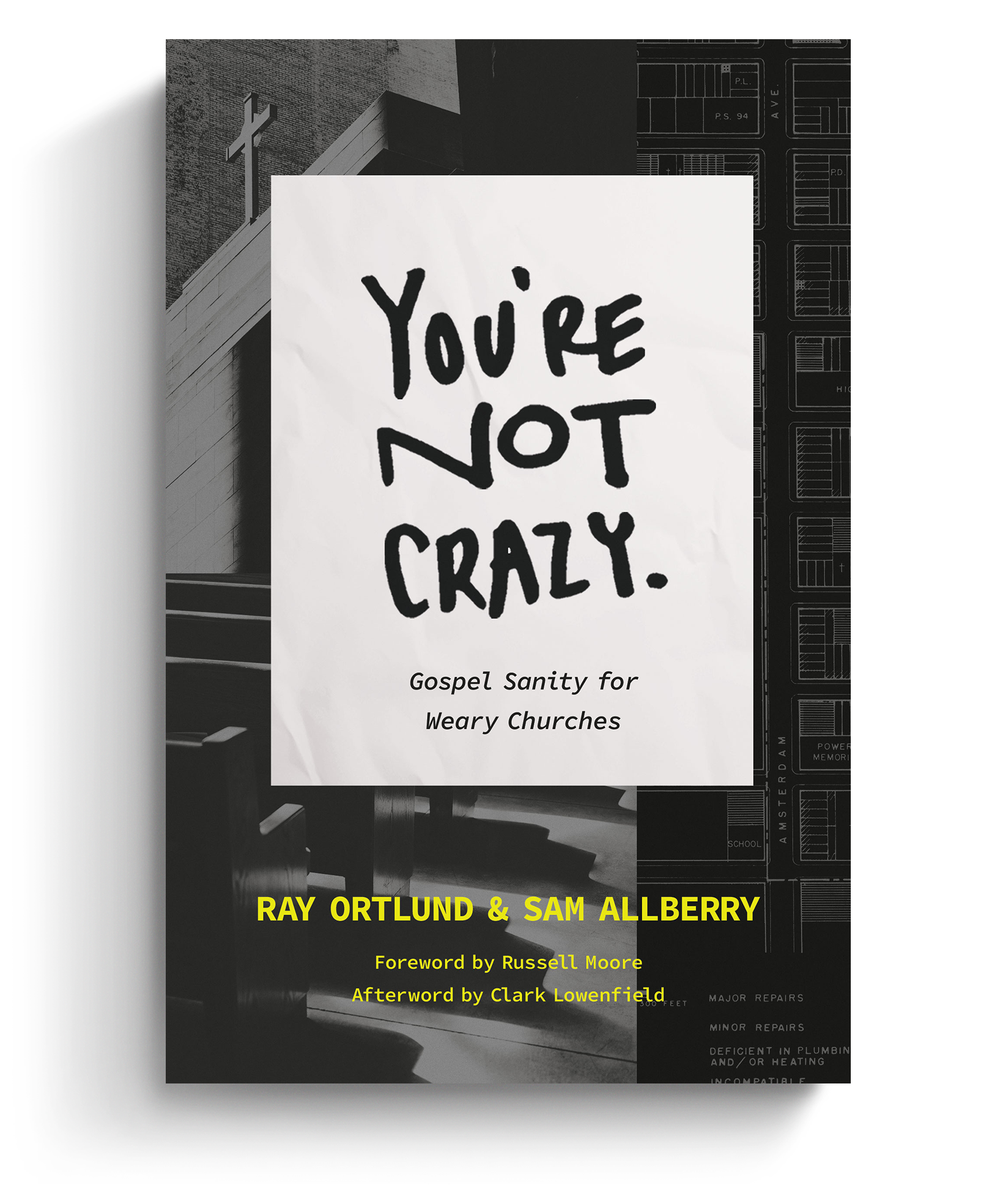“So what if everything in the Bible isn’t true and reliable or from God? That doesn’t really matter. The Bible still remains an authority in my life.”
Though it’s been years now, I remember hearing those words as if it were yesterday. I had no idea what to say in response.
I was shocked because I was hearing these words from a churchgoing, Bible-carrying, evangelical Christian. This person saw no relation between the truthfulness of Scripture and the authority of Scripture, as if one had nothing to do with the other.
In that moment I realized two things: First, the Reformation doctrine of sola scriptura is just as important today as it was in the 16th century. I also saw that many Christians in the church have no idea what sola scriptura is or entails.
So what is sola scriptura? It means that only the Bible—because it is God’s inspired Word—is our inerrant, sufficient, and final authority. This definition entails three implications related to authority.
1. Our Only Supreme Authority
First, this means Scripture alone is our final authority. “Authority” is a bad word in our day of rugged individualism. But the Bible is all about authority. In fact, sola scriptura means the Bible is our chief, supreme, and ultimate authority. Notice I didn’t say the Bible is our only authority. Sola scriptura is too easily confused today with nuda scriptura, the view that we should have “no creed but the Bible.”
Those who repeat this misguided mantra believe creeds, confessions, and voices of tradition carry no authority in the church. But this was not the reformers’ position, nor should it be equated with sola scriptura.
Sola scriptura acknowledges there are other important authorities for the Christian, authorities who should be listened to and followed. But Scripture alone is our final authority. It’s the authority that rules over and governs all other authorities; it has the supreme say. While church tradition and church officials play a ministerial role, Scripture alone plays a magisterial role. This means all other authorities are to be followed only inasmuch as they align with Scripture, submit to Scripture, and are seen as subservient to Scripture.
2. Our Only Sufficient Authority
Sola scriptura also means that Scripture alone is our sufficient authority. Not only is the Bible our supreme authority, it is the authority that provides believers with all the truth they need for salvation and following Christ. This notion of the Bible’s sufficiency has been powerfully articulated by Reformed confessions. For example, The Belgic Confession (1561) states: “We believe that those Holy Scriptures fully contain the will of God, and that whatsoever man ought to believe unto salvation is sufficiently taught therein.”
And the Westminster Confession of Faith (1646) says: “The whole counsel of God concerning all things necessary for His own glory, man’s salvation, faith and life, is either expressly set down in Scripture, or by good and necessary consequence may be deduced from Scripture: unto which nothing at any time is to be added, whether by new revelations of the Spirit, or traditions of men.”
The Bible is enough for us.
3. Our Only Inerrant Authority
Sola scriptura also implies that only Scripture, because it is God’s inspired Word, is our inerrant authority. The basis of biblical authority is that God is its divine author. The ground for biblical authority is divine inspiration. As the Westminster Confession states,
The authority of the Holy Scripture, for which it ought to be believed, and obeyed, dependeth not upon the testimony of any man, or church, but wholly upon God (who is truth itself) the author thereof; and therefore it is to be received, because it is the Word of God (1 Thess. 2:13; 2 Tim. 3:16; 2 Pet. 1:19, 21; 1 John 5:9).
To get a full picture of sola scriptura, we need to go beyond saying the Bible is merely inspired or God-breathed. Inspiration should lead to an understanding that the Bible is perfect and flawless. In other words, inerrancy is the necessary corollary of inspiration. They are two sides of the same coin, and it’s impossible to divorce one from the other.
Because it’s God speaking—and he is a God of truth, not error—his Word must be true and trustworthy in all it addresses. And because inerrancy is a biblical corollary and consequence of divine inspiration—inseparably connected and intertwined—it is a necessary component of sola scriptura.
Some will prefer the word “infallible” instead (which does have historical precedent). I’m fine with using the word as long as one means Scripture is incapable of erring. However, I would reject those who use it to say Scripture is true in its saving message but not in its specifics (e.g., historical details). “Infallible” and “inerrant” are complementary and compatible concepts—“infallible” (Scripture cannot err) being an even stronger word than “inerrant” (Scripture does not err). It’s historically and biblically erroneous, then, to use “infallible” to convey something less than “inerrancy.”
What If We Reject It?
The God of truth has breathed out his Word of truth, and the result is nothing less than a flawless authority for the church. Were we to divorce the truthfulness and trustworthiness of Scripture from its authority, disconnecting the two as if they’re unrelated, we would be left with no doctrine of sola scriptura at all. Should Scripture contain errors, it is unclear why we should trust Scripture as our final authority.
Should Scripture contain errors, it is unclear why we should trust Scripture as our final authority.
And should we limit, modify, or abandon the total inerrancy of Scripture, we set in motion tremendous doubt and uncertainty regarding the Bible’s competence as our final authority. As the Chicago Statement on Biblical Inerrancy puts it, “The authority of Scripture is inescapably impaired if this total divine inerrancy is in any way limited or disregarded.”
In other words, to reject biblical inerrancy is to undermine confidence in biblical authority, and what could have more relevance to sola scriptura than biblical authority? As Roger Nicole once wrote, “What is supremely at stake in this whole discussion [of inerrancy] is the recognition of the authority of God in the sacred oracles.”
It shouldn’t surprise us to find that in the recent history of evangelicalism, leaders have rallied around statements such as the Cambridge Declaration (1996), affirming inerrancy’s inseparability from sola scriptura: “Scripture alone is the inerrant rule of the church’s life,” and the inerrant Scripture is to be “the sole source of written divine revelation, which alone can bind the conscience.”
Luther’s Central Question
What’s often missed in retellings of Luther’s story is the question of why his stance on Scripture was so detested by Rome. After all, Rome also affirmed Scripture’s authority and inspiration. So what made Luther’s stance so different and offensive?
He had the audacity to imply that Scripture is the Christian’s only inerrant authority.
It’s true the reformers never used the term “inerrancy.” But this objection fails to realize that though the term was not used, the concept was affirmed. Though the reformers didn’t flesh out the idea of inerrancy as meticulously as we have today (after all, inerrancy wasn’t their main battle with Rome), the basic concept and its most fundamental components are present in their writings. [See John Woodbridge’s compelling essay “Did Fundamentalists Invent Inerrancy?”]
While popes and councils err, Scripture does not. For Rome, Scripture and tradition were inerrant authorities. For Luther, Scripture alone is inerrant. What distinguished Luther and the rest of the reformers from church leaders in Rome, then, was their claim that as important as tradition is (and they thought it was extremely important), tradition is not without error. That honor goes to Scripture alone. Because Scripture is inspired by God and therefore inerrant, the reformers believed it alone is the church’s final authority, sufficient for faith and practice.
Editors’ note: This is an adapted excerpt from Matthew Barrett’s book God’s Word Alone: The Authority of Scripture (Zondervan, 2016) [review]. It is the first volume in The 5 Solas Series.
Are You a Frustrated, Weary Pastor?
 Being a pastor is hard. Whether it’s relational difficulties in the congregation, growing opposition toward the church as an institution, or just the struggle to continue in ministry with joy and faithfulness, the pressure on leaders can be truly overwhelming. It’s no surprise pastors are burned out, tempted to give up, or thinking they’re going crazy.
Being a pastor is hard. Whether it’s relational difficulties in the congregation, growing opposition toward the church as an institution, or just the struggle to continue in ministry with joy and faithfulness, the pressure on leaders can be truly overwhelming. It’s no surprise pastors are burned out, tempted to give up, or thinking they’re going crazy.
In ‘You’re Not Crazy: Gospel Sanity for Weary Churches,’ seasoned pastors Ray Ortlund and Sam Allberry help weary leaders renew their love for ministry by equipping them to build a gospel-centered culture into every aspect of their churches.
We’re delighted to offer this ebook to you for FREE today. Click on this link to get instant access to a resource that will help you cultivate a healthier gospel culture in your church and in yourself.
































